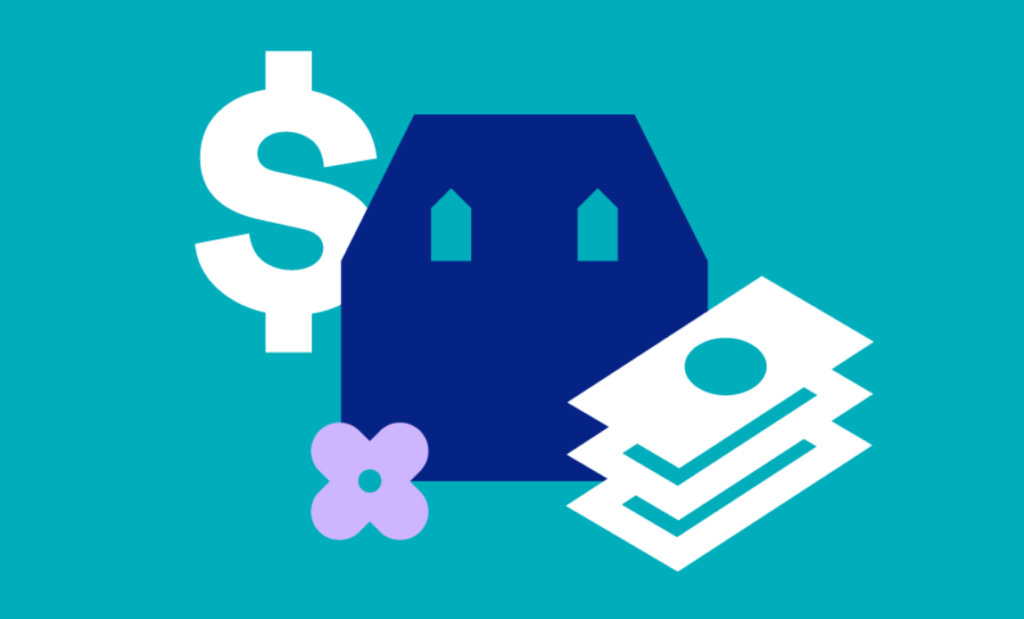How does a cash offer on a house work?
When it comes to selling a house, most homeowners are familiar with the traditional process of listing their property on the market and waiting for a potential buyer to make an offer. This process often involves working with a real estate agent, staging the home for viewings, and negotiating with potential buyers. However, there is another option that has become increasingly popular in recent years — a cash offer on a house. This type of transaction involves a cash home buyer purchasing the property directly from the homeowner, without the need for financing or a lengthy closing process.
In this article, we will explore how a cash offer on a house works and the benefits it can offer to both home buyers and sellers. We will delve into the specifics of what a cash offer entails, how it differs from a traditional offer, and the advantages it can provide. Whether you’re a homeowner looking to sell or a potential buyer interested in making a cash offer, this guide will provide you with the information you need to navigate this type of real estate transaction.
What is a cash offer on a house?
A cash offer on a house is a type of real estate transaction where the buyer offers to purchase the property with cash, rather than obtaining a mortgage or other type of financing. This means that the buyer has the funds available to purchase the property outright, without the need for a loan. In most cases, cash offers are made by investors or individuals who are looking to purchase a property quickly and without the hassle of traditional financing.

This type of transaction can be particularly appealing in competitive real estate markets, where sellers may receive multiple offers on their property. A cash offer can stand out among these offers, as it often involves a quicker, more straightforward process. Additionally, because the buyer is not reliant on a lender to finance the purchase, there is less risk of the deal falling through due to financing issues.
How is a cash offer different from a traditional offer on a house?
The main difference between a cash offer and a traditional offer is the source of funding. With a traditional offer, the buyer will typically need to obtain a mortgage from a lender to finance the purchase of the property. This process can take several weeks or even months, as the buyer will need to go through the application and approval process. On the other hand, a cash offer does not involve any financing, which means that the buyer can close on the property much faster.
Furthermore, a cash offer can often bypass many of the contingencies that are typically included in a traditional offer. These contingencies, such as the need for a home inspection or the buyer’s ability to secure financing, can delay the closing process and introduce uncertainty into the transaction. With a cash offer, these contingencies are often unnecessary, as the buyer has the funds available to purchase the property outright and is typically willing to accept the property “as is.”
Understanding the Benefits of a Cash Offer on a House

A cash offer on a house can provide several benefits for both buyers and sellers. For sellers, some of the benefits include:
- 1. Speed of transaction: With a cash offer, the closing process can be completed much faster, typically in a matter of days instead of weeks or months. This can be advantageous for sellers who need to sell their property quickly, such as in cases of job relocation, financial difficulties, or inherited properties.
- 2. Certainty of the sale: When accepting a cash offer, there is no risk of the buyer’s financing falling through. This eliminates the uncertainty that can come with traditional offers, where there is always a chance that the buyer’s loan application may be denied. Sellers can proceed with confidence, knowing that the transaction is more likely to close successfully.
- 3. Simplified selling process: Without the need for a mortgage, sellers can avoid dealing with appraisals, inspections, and other requirements that lenders often impose. This can make the selling process smoother and less stressful for the seller, allowing them to focus on their next steps after the sale.
By accepting a cash offer, sellers can benefit from a quicker and more certain sale, as well as a simplified selling process.
What are the benefits of a cash offer for the house seller?
For sellers, a cash offer can offer several benefits. The most obvious advantage is the speed of the transaction. Since there is no need for financing, the closing process can be completed in a matter of days, rather than weeks or months. This can be especially beneficial for sellers who are looking to sell their property quickly, such as in cases of job relocation, financial difficulties, or inherited properties.
Another benefit of a cash offer is the certainty of the sale. With a traditional offer, there is always a risk that the buyer’s financing may fall through, causing the sale to fall through as well. This can be a major inconvenience for sellers, who may have already made plans to move or purchase a new property. With a cash offer, there is no risk of financing falling through, as the buyer has the funds available to purchase the property outright.
Moreover, a cash offer can often simplify the selling process for homeowners. Without the need for a mortgage, there is no need for the seller to deal with appraisals, inspections, or other requirements that lenders often impose. This can make the process smoother and less stressful for the seller, allowing them to focus on their next steps after the sale.
What are the benefits of a cash offer for the home buyer?
Cash offers can also offer benefits to buyers. One of the main advantages is the ability to negotiate a lower price. Since cash buyers do not need to obtain financing, they can often offer a lower price for the property. This can be appealing to sellers who are looking for a quick sale and are willing to accept a lower price in exchange for a fast and hassle-free transaction.
Another benefit for buyers is the lack of competition. In a traditional real estate transaction, there may be multiple buyers interested in the same property, which can drive up the price. With a cash offer, there is typically less competition, which can give the buyer an advantage in negotiations and potentially result in a lower purchase price.
Furthermore, cash home buyers often have more flexibility in their purchases. Without the need for lender approval, they can often close on a property more quickly, allowing them to move in sooner or begin any necessary renovations or repairs. This can be particularly beneficial for buyers who are purchasing a property as an investment or who have specific timelines they need to adhere to.
How does the process of a cash offer work?

Now that we have covered the basics of cash offers, let’s take a closer look at the process of how it works.
Step 1: Finding a cash buyer
The first step in the process is finding a cash buyer who is interested in purchasing your property. This can be done through various means, such as working with a real estate agent who specializes in cash transactions, advertising your property as a “cash only” sale, or reaching out to local real estate investors. It’s important to note that while cash buyers can often close on a property more quickly, they may also be more selective in their purchases, as they are typically looking for properties that offer a good return on their investment.
In addition to finding a cash buyer, it’s also important to ensure that the buyer has the necessary funds to complete the purchase. This may involve requesting proof of funds, such as a bank statement or letter from a financial institution, to confirm that the buyer has the cash available to purchase the property.
Step 2: Negotiating the price
Once you have found a potential cash buyer, the next step is to negotiate the price of the property. As mentioned earlier, cash buyers may be able to offer a lower price, so it’s important to consider this when negotiating. However, as a seller, you should also be aware of the current market value of your property and not accept an unreasonably low offer.
During the negotiation process, it’s also important to consider any other terms of the sale, such as who will pay for closing costs or any necessary repairs. These factors can affect the overall cost of the transaction and should be taken into account when negotiating the sale price.
Step 3: Conducting due diligence
Before finalizing the sale, the cash buyer will likely want to conduct their due diligence on the property. This may include a home inspection, title search, and other necessary checks to ensure that the property is in good condition and there are no legal issues that could affect the sale. While this step can add some time to the process, it’s an important part of ensuring a smooth transaction and protecting the buyer’s investment.
In some cases, the buyer may also request additional information about the property, such as past repair records or information about the neighborhood. As a seller, it’s important to be prepared to provide this information and to be transparent about any issues that may affect the property’s value.
Step 4: Closing the sale
Once the due diligence is complete and both parties have agreed on the terms, the sale can be closed. This typically involves signing the necessary paperwork and transferring the funds from the buyer to the seller. The closing process can be completed in a matter of days, making it much faster than a traditional real estate transaction.
During the closing process, both parties need to work closely with their respective legal and financial advisors to ensure that all paperwork is completed correctly and that all funds are transferred securely. This can help to avoid any potential issues or delays and ensure a smooth and successful transaction.
Is a cash offer on a house right for you?
Now that you understand how a cash offer on a house works, you may be wondering if it is the right option for you. The answer to this question will depend on your circumstances and priorities. If you are looking for a quick sale and are willing to accept a potentially lower price, a cash offer may be a good option for you. However, if you are not in a rush to sell and are looking to get the highest possible price for your property, a traditional sale may be a better choice.
It’s also important to consider the current state of the real estate market in your area. In a seller’s market, where demand for homes is high and inventory is low, you may be able to get a higher price for your property through a traditional sale. On the other hand, in a buyer’s market, where there are more homes for sale than there are buyers, a cash offer may be more appealing to sellers.
Conclusion
A cash offer on a house can offer a fast and hassle-free way to sell a property. It can benefit both buyers and sellers, offering advantages such as a quick sale, certainty of the transaction, and potential cost savings. However, it’s important to carefully consider your options and priorities before deciding if a cash offer is the right choice for you.
Whether you’re a seller looking to move quickly or a buyer interested in a straightforward transaction, a cash offer can be a viable option. As with any real estate transaction, it’s important to do your research, understand the process, and consult with professionals to ensure that you’re making the best decision for your circumstances.




